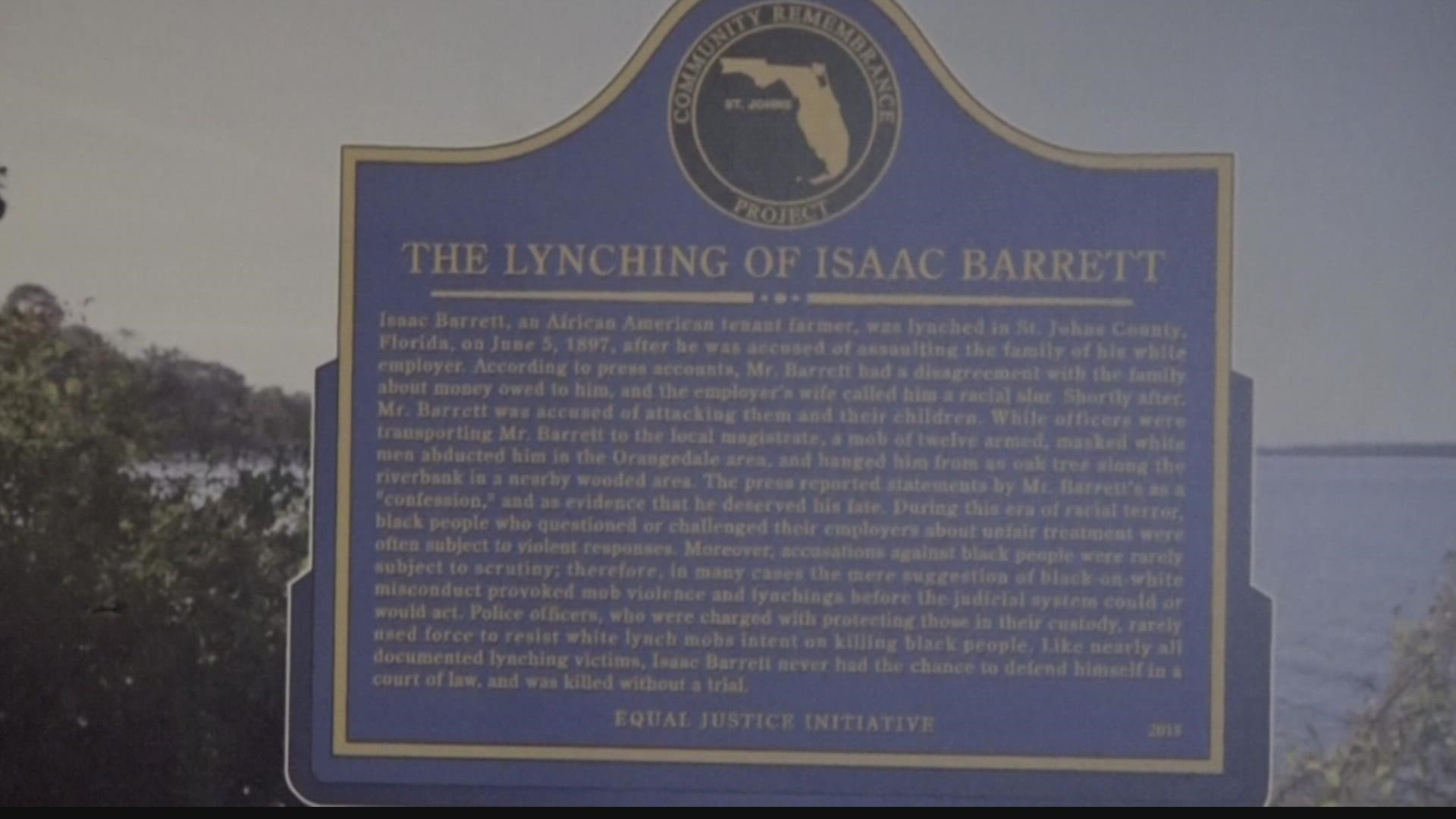ST. AUGUSTINE, Fla. — A historic marker where a Black man died by lynching in St. Johns County was first stolen. Then its replacement was set aside for years.
Monday evening, the St. Augustine City commissioners voted unanimously to have the marker installed by the Visitor Information Center near the city’s parking garage.
It was a journey to get to this point.
In 1897, along the St. Johns River near Orangedale in western St. Johns County, Isaac Barrett, a Black farmer, was lynched by a white mob.
He said he was helping a white family when he heard them screaming for help, but the sheriff arrested him.
On his way to the jail, a mob of masked men was able to get to Barrett and hanged him.
For years, it was the only known documented lynching in St. Johns County.
More than a hundred years later, in 2018, a historic marker recording the lynching was installed at a St. Johns County park, near a pier on the St. Johns River.
Gayle Phillips with the Lincolnville Museum along with support from the Equal Justice Initiative and the St. Johns County government helped get the marker in place.
Less than two days later, the marker was stolen.
Phillips and others felt a replacement should not go in the same area.
"We felt the same thing would happen all over again," she told First Coast News.
Phillips and many others asked St. Augustine leaders if it could go in the city’s downtown plaza, 20 miles away, even though the lynching did not happen inside the city's limits. Other historical markers and memorials are in the plaza.
In 2019, the St. Augustine City commission unanimously approved the move to install an Isaac Barrett lynching marker for the plaza.
However, before the marker was placed in the plaza, the national uproar following George Floyd's death began. His death at the hands of police officer Derek Chauvin lead to race rallies across the country and in the city.
The city commissioners voted to remove the confederate monument from the plaza in 2020. This decision created controversy and led to some violent protests.
"It was a difficult time for the city," Upchurch said.
Additionally, the marker does not meet a city law which requires historical plaques/monuments in the plaza to mark incidents within city limits and during a certain time period.
St. Augustine Mayor Tracy Upchurch told First Coast News Monday, "We maybe should not have agreed to it going in the plaza in the first place."
Placement of the marker in the plaza stalled.
"City staff, the commission, and certainly the mayor needed a chance to catch our breath and get reoriented on this issue," Upchurch said.
Monday night, the issue of the lynching marker was on the city commission agenda for the first time since commissioners voted on it in 2019.
Commissioners voted to place the lynching marker less than a mile away from the plaza. It will be installed by the Visitor Information Center and the parking garage.
"I think it's a good location, because of the foot traffic that comes through there," Phillips said.
But the fact that the marker isn’t going where the actual lynching happened 20 miles away in western St. Johns County may speak to the tensions that remain.
"We have people still in our community who have adverse reactions to telling the real stories of history," Phillips said. "Especially the unpleasant issues of our history."

